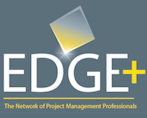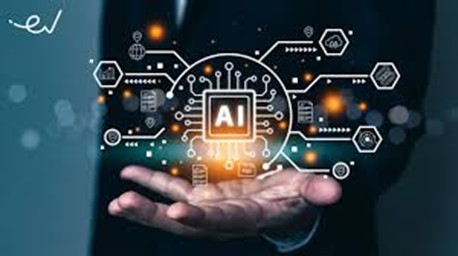The Future of Project Management: Upskilling in AI and Essential Tools for Success
In today’s rapidly evolving technological landscape, artificial intelligence is significantly transforming the project management profession. According to PMI research, 82% of senior leaders believe AI will impact how projects are run at their organizations over the next five years, with 91% of project professionals expecting at least a moderate impact on their profession. As project managers navigate this transformation, understanding how to upskill in AI and leverage the right tools has become essential for maintaining relevance and driving project success. This comprehensive report explores how project managers can develop AI competencies and identifies the most valuable AI-powered tools that are reshaping project management practices.
The Current State of AI in Project Management
The integration of AI into project management is already well underway, though adoption rates vary considerably. According to the 2023 PMI Annual Global Survey on Project Management, 21% of respondents report using AI always or often in project management. More significantly, 58% of project professionals believe AI will have a “major” or “transformative” impact on their profession.
Despite recognizing the importance of AI, there exists a concerning skills gap. Only about 20% of project managers report having extensive or good practical experience with AI tools and technologies, while nearly half (49%) have little to no experience with or understanding of AI in project management contexts. This disparity highlights an urgent need for upskilling, as project managers who stay at the forefront of emerging technologies and drive AI adoption within their organizations will be best positioned for career success.
The introduction of Generative AI (GenAI), particularly since the public release of ChatGPT in November 2022, has accelerated AI’s impact on the profession. Fluency in AI basics is now considered non-negotiable – it must become part of the fundamental skill set of modern project managers.
The Evolution of Project Management Roles
As AI capabilities advance, project management roles are evolving rather than disappearing. While some routine tasks may become automated, human project managers are adapting to collaborate with AI rather than be replaced by it. New hybrid roles, such as “Project AI Facilitator,” are emerging, blending technical expertise with leadership and team dynamics. These professionals serve as bridges between AI systems and human stakeholders, ensuring projects run smoothly while addressing the human aspects of collaboration.
Upskilling Strategies Using the PMI Talent Triangle Framework
The PMI Talent Triangle offers a robust framework to help project managers identify and develop the skills needed in the AI era. This framework consists of three dimensions: Ways of Working, Power Skills, and Business Acumen. Project managers can use this framework to structure their AI learning journey and develop a comprehensive set of capabilities.
Ways of Working
This dimension focuses on adopting the best approaches, practices, techniques, and tools to manage projects successfully. Project managers should develop skills in:
- AI-Enhanced Project Planning: Learn to use GenAI to simplify data mining and analysis of historical data for project planning and optimization, as well as to generate comprehensive project documentation.
- Time and Cost Management: Develop the ability to use AI for supporting time and cost estimation, conducting cost-benefit analysis, performing earned value analysis, and identifying mitigation actions for cost overruns and delays.
- Risk Management: Gain proficiency in using AI to support risk identification, analysis, and development of risk mitigation strategies. AI can help define risk planning, generate risk reports, and support communication about risks.
- Writing and Reading Assistance: Learn to leverage GenAI for improving document creation, email communication, code generation, meeting note summarization and extracting insights from unstructured data.
Power Skills
While technical capabilities are important, project managers must also develop the human-centric soft skills that AI cannot replicate, including:
- Communication and Stakeholder Management: Enhance abilities to communicate complex AI concepts to stakeholders and team members while managing expectations about AI capabilities and limitations.
- Problem-Solving and Critical Thinking: Develop skills to evaluate AI outputs critically and integrate AI-generated insights with human judgment for better decision-making.
- Leadership and Team Development: Learn to lead teams in AI-augmented environments, balancing automation with human creativity and collaboration.
Business Acumen
Project managers need to understand the business implications of AI adoption:
- Strategic Alignment: Develop the ability to align AI implementation with organizational goals and demonstrate the business value of AI-enhanced project management.
- Industry Knowledge: Stay informed about how AI is transforming specific industries to better anticipate changes and opportunities.
- Data Literacy: Understand the fundamental relationship between data and AI, becoming familiar with organizational data strategies and practices. This knowledge helps project managers evaluate AI outputs more effectively and shape project-specific AI tools and models.
Practical Approach to AI Skill Development
Project managers can adopt a two-tiered approach to developing AI competencies, customized to individual needs and goals:
- Broad Development Focus: Identify skills to enhance, map them to specific learning needs related to AI tools and concepts, and define expected results from upskilling efforts.
- Project-Level Enhancement: Apply AI skills to current project performance domains and deliverables, understanding which project management activities can be supported by GenAI.
This practical approach allows project managers to systematically build their AI competencies while seeing immediate benefits in their current roles and projects.
Essential AI Project Management Tools
Several AI-powered tools are transforming how projects are managed and delivered. These tools extend beyond traditional project management software with features specifically designed to enhance efficiency and deliver AI-driven insights.
Task and Workflow Management Tools
- ClickUp: This AI-powered tool analyses deadlines, project dependencies, and team workload to suggest the most efficient order for task completion. It identifies critical tasks that should be addressed first and adjusts schedules in real-time as priorities change.
- Trello with Butler: Trello’s AI feature automates repetitive tasks like sorting cards, assigning tasks, and setting due dates based on predefined rules. This automation reduces manual work and ensures deadlines are met without human intervention.
- Asana: Its AI features help project managers prioritize tasks and manage workloads effectively. Asana’s Workload tool uses AI to analyse team capacity and ensure tasks are distributed evenly, avoiding burnout or underutilization.
Advanced AI Capabilities in Project Management
Modern AI project management tools offer sophisticated capabilities that transform traditional processes:
- Predictive Analytics: These tools use current and historical data to forecast potential bottlenecks, budget overruns, or resource constraints, allowing for proactive management.
- Natural Language Processing (NLP): Chatbots and virtual assistants can answer questions or perform routine tasks, such as generating reports or assigning tasks to team members, simplifying interactions with management systems.
- Automated Reporting: Instead of manually creating reports, AI tools can generate comprehensive updates and insights automatically, saving significant time and providing more accurate information.
- Risk Assessment: AI tools continuously analyse project data to identify potential risks before they become problems, suggesting mitigation strategies based on past successful approaches.
The Future of Project Management in an AI-Driven Environment
As AI technology advances, project management will continue to evolve, creating both challenges and opportunities for professionals in the field.
Emerging Trends
- AI Avatars and Natural Language Interfaces: These technologies will simplify communication among team members and stakeholders, making collaboration seamless. Virtual assistants will answer queries, provide updates, and facilitate quick resolutions to routine issues.
- Continuous Learning Systems: Future AI tools will learn from each project, improving their predictions and recommendations over time, creating a virtuous cycle of enhancement.
- Integration Across Platforms: AI project management tools will increasingly connect with other enterprise systems, creating seamless workflows and reducing data silos.
Preparing for an AI-Augmented Future
To thrive in this evolving landscape, project managers should:
- Embrace Lifelong Learning: Develop skills in AI literacy, strategic thinking, and emotional intelligence. Seek out training programs and certifications that incorporate AI-focused modules.
- Leverage AI as a Collaborator: Rather than viewing AI as a competitor, adopt it as a tool that allows focus on higher-value tasks like strategic planning, risk mitigation, and stakeholder alignment.
- Join Professional Communities: Engage with professional bodies and educational institutions that offer workshops, certifications, and mentoring programs focused on integrating AI into project management practices.
Conclusion
The integration of AI into project management represents both a challenge and an opportunity for project managers. Those who proactively upskill in AI technologies and learn to leverage AI-powered tools will find themselves at a significant advantage in the evolving job market. Rather than replacing project managers, AI is transforming their roles, automating routine tasks while creating space for more strategic and human-centric work.
The PMI Talent Triangle provides an excellent framework for developing a comprehensive set of AI skills across ways of working, power skills, and business acumen. Combined with practical experience using AI project management tools like ClickUp, Trello, and Asana, project managers can enhance their effectiveness and demonstrate increased value to their organizations.
The future belongs to project managers who view AI as a collaborator rather than a competitor, who continuously develop their skills, and who learn to balance the technological capabilities of AI with the uniquely human skills of leadership, creativity, and emotional intelligence. By embracing this future, project managers can ensure their continued relevance and success in an increasingly AI-driven world.


